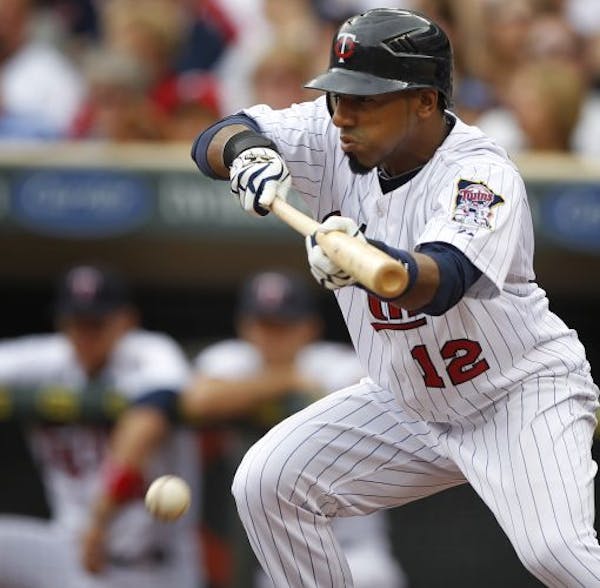If you go by the linescores of the games against Oakland over the weekend, the Twins don't appear to be that far away from getting on a roll and being the division title threat many expect them to be.
They just lost a series against Oakland in which the scores were 2-1 on Friday (win), 1-0 on Saturday (loss) and 5-3 on Sunday (loss). They weren't blown out of those games. Better execution might have led to a victory on Saturday. Once the offense picks it up, the Twins should take off.
Unfortunately for the Twins, offense isn't their only problem.
The Twins entered Sunday having walked 31 batters (and added five more Sunday), sixth-most in baseball and third-most in the American League. Twins starters -- the group that has excelled by throwing strikes for years -- are third in baseball with 23 walks through Sunday as a unit.
At first glance, they were in three close games against Oakland. Factor in the walks, pitch counts, long at-bats and the length of time it's taken to get the defense off the field, and the Twins were lucky they were facing the Athletics, a team that was 11th in the AL in runs scored last season.
The A's have a talented rotation; they just need offense. Offseason additions Hideki Matsui, who hit his first homer of the season on Sunday, and David DeJesus, who has a 25-game hitting streak against the Twins, are supposed to help with that.
But if the Twins pitched this way against some of the better hitters in the league, the past two games might have been routs and the bullpen decimated.
"We're lucky to get out of here like we did," Twins pitching coach Rick Anderson admitted. "We're walking five, six guys a game."
Righthander Nick Blackburn did not give up an unearned run Saturday, but he walked three batters and threw 106 pitches over six innings, which is high. It was one reason the 1-0 game lasted an incredible 3 hours, 5 minutes. Oakland starter Gio Gonzalez wasn't sharp either (also with 106 pitches in six innings), which added to the long night.
On Sunday, Twins righthander Scott Baker got pitches up in the strike zone and missed the corners. A bad changeup turned into Matsui's homer. A fastball that slid over the heart of the plate was crushed 427 feet to left by Josh Willingham.
Baker threw 99 pitches in five-plus innings, giving up four earned runs on seven hits -- including the two homers -- and two walks.
"You fall behind guys and you don't want to walk anybody," Baker said. "So I'm kind of pitching defensively right now, where I need to continue to trust the fact I can do it because I've done it before."
The Twins haven't walked many hitters since Anderson became pitching coach before the 2002 season. For the past nine seasons, the Twins have finished either first or second in fewest walks issued by a staff. When pitchers walk batters, the pace of the game slows and tends to affect other areas of the game.
The Twins coaching staff has noticed. They want more strikes thrown and for pitchers to work a little faster. Baker, who tends to give up a lot of foul balls because he's up in the strike zone, needs to get the ball down.
Most of the pitchers in question have enough experience to make the adjustments quickly.
"We're pitching away from contact a little too much," Twins manager Ron Gardenhire said. "We have a team that pitches to contact. Get them to swing the bat early. Right now the games, you can see it, you can feel it. The game is dragging.
"Blackie [on Saturday] was dragging. Let's go. Too many 3-2 counts, and we're better than that. We like pace of the game to flow, and right now it's kind of setting back and that doesn't help your offense. We can improve in a lot of different ways when we're getting the ball and throwing it over and the innings go quick and the guys are up there hitting more than standing around [in the field]."
La Velle E. Neal III • lneal@startribune.com
